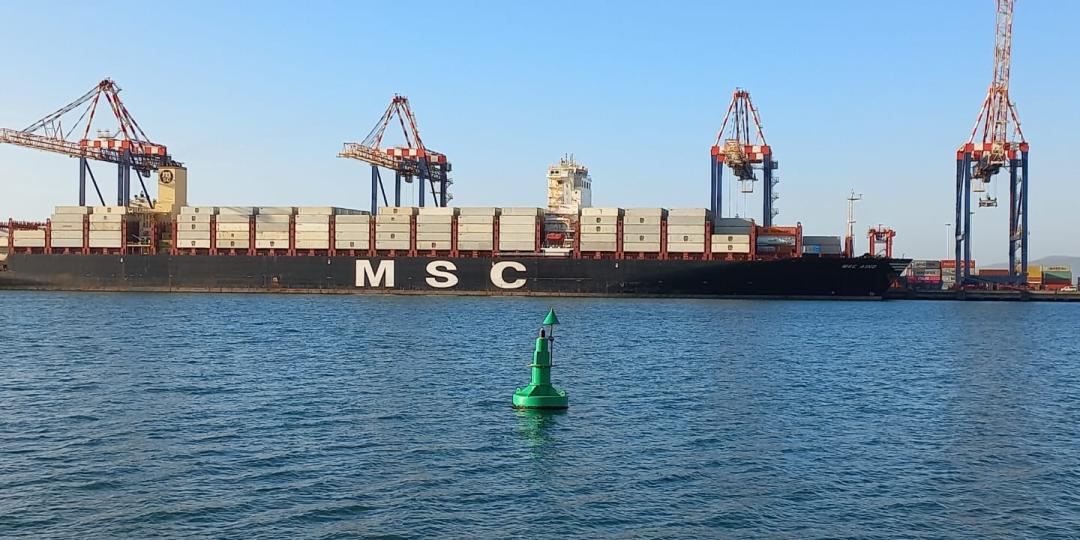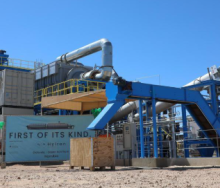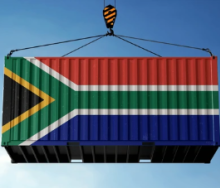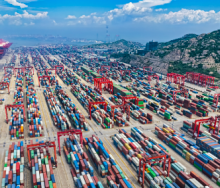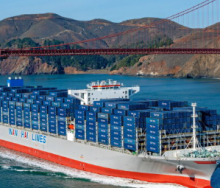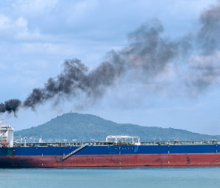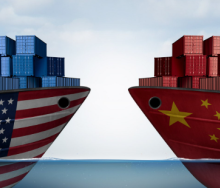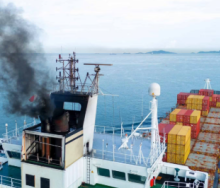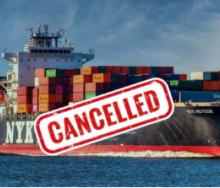The MSC AINO loaded a record number of live reefers during one of South Africa’s busiest citrus export seasons ever.
MSC operations director, Captain Ian Rosario, said it took port workers a total of seven days to load a record 2 099 containers, containing 63 million kilograms of mainly citrus fruit destined for several ports in Europe. Additional general cargo included wine shipped in flexitanks, minerals such as cobalt, chrome, ferrochrome and manganese, polymers, steel, paper produce, automobile parts and fishmeal.
The vessel, which called earlier this month at Durban, Ngqura and Cape Town ports where the fruit and other dry cargo was loaded, was expected to arrive at the ports of Las Palmas in Spain on August 19, Sines in Portugal on August 22, Rotterdam on August 26, London Gateway on August 28, and finally Antwerp on August 30.
Rosario said the huge global demand and the professional coordination within the local logistics chain had led to the record-breaking load.
“This is a record-breaking achievement for MSC SA as no other shipping company has achieved this feat within the South African context, ever, on a single shipment. Globally too, this could perhaps be the largest lifting from a single country on a container vessel,” Rosario said.
“Besides the market demand that has been instrumental, it is the coordination in managing the logistics, of mobilising the volumes from the pack houses to the terminals and across the three South African ports, namely Durban, Ngqura and Cape Town, that has contributed to this record-breaking load,” Rosario said.
“These containers were carefully allocated stow positions on board the ship from the first port of load itself, namely Durban. Essentially, advance planning upon provision of a good forecast from our reefer team contributed to a significant extent. The execution of the load plan on board the ship had to be effected to near perfection, with little or no margin for error.”
It took seven days to load the massive 63 million kilograms of citrus cargo.
“In essence, this was just one week’s shipment that was loaded on this vessel. MSC continues to load close to similar volumes week after week, thus significantly supporting the farmers in exporting their commodity.”
The previous record, also held by MSC, was 1 994 FEUs (forty-foot equivalent units) during last year’s reefer season (2021) when approximately 60 million kilograms of citrus was shipped to EU destinations on a single vessel.
He said the latest record-breaking achievement placed South Africa in a better position within the global context.
“It promotes reliability in deliveries to EU markets, despite the recently implemented EU protocol for citrus, which mandated that the fruit had to be carried at a specific temperature for a defined period of time,” Rosario said.
“The industry at large benefited, as they were able to ship their produce at the peak of the reefer season and maintain their credibility as a reliable exporter. It is crucial to take note of the fact that this produce can also be sourced from Argentina, Uruguay and Brazil, during the same period. So it becomes binding on role players in the logistical supply chain to discharge their responsibilities diligently to successfully accomplish a common goal and boost the South African economy, which at this point in time is absolutely essential.”
He added that it was “absolutely crucial” that Transnet Port Terminals liaised closely with shipping lines to facilitate fresh produce shipments with due regard for their perishable nature and shelf life.
“The facilitation of exports is critical due to the fact that if an opportunity to ship a container is not afforded for that particular week, one must take into account that this prospect is completely lost and cannot be substituted, as the appetite for fruit depends on what is stacked on the shelves, at the time,” Rosario said.
“This enablement from the various stakeholders goes a long way in establishing South Africa’s credibility as a reliable exporter of the produce, having due regard that this produce can be sourced from other countries too. In essence, it is essential that South Africa remains competitive in this market to be able to retain its market share and possibly seek further growth in a bid to secure its global position.”
